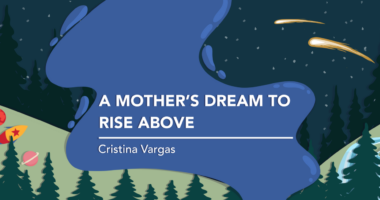CLN2 Therapy Brineura Gets WORLDSymposium 2018 New Treatment Award

Brineura (cerliponase alfa), marketed by BioMarin Pharmaceuticals, was given the WORLDSymposium 2018 New Treatment Award in recognition of its achievements in treating lysosomal diseases, including Batten disease.
Brineura slows the decline of children’s ability to crawl or walk, and is the only therapy approved by the U.S. Food and Drug Administration and European Union to treat children age 3 years or older with late infantile ceroid lipofuscinosis type 2 (CLN2), also known as tripeptidyl peptidase 1 (TPP1) deficiency, a very rare form of Batten disease.
An enzyme replacement therapy, it works to restore TPP1 enzyme activity and helps to eliminate the storage materials responsible for CLN2 disease. Brineura is delivered directly into the fluid surrounding the brain (cerebrospinal fluid) in order to reach cells of the central nervous system.
“We are honored that Brineura has been recognized by the WORLDSymposium as the first approved therapy to treat a form of Batten disease,” said Hank Fuchs, MD, president of Worldwide Research and Development at BioMarin, in a press release. “The approval of Brineura was a direct reflection of an unwavering commitment and partnership between families, advocates and physicians. We share this award with those communities and look forward to continuing to provide our support to advance the care of children with CLN2 disease.”
Brineura’s effectiveness was evaluated in a Phase 1/2 clinical trial (NCT01907087) in which data at 48 weeks showed that 87 percent, or 20 of the 23 children who concluded the dose-escalation study, continued to have motor-language scores showing substantially slower disease progression, when compared with 42 patients in a natural history group. The study did not include a placebo group, and the impact of the treatment was assessed by comparing trial participants’ decline with that of children going through the natural course of the disease, as observed in earlier studies.
An ongoing Phase 2 extension study (NCT02485899) provides patients who completed the earlier study the option to continue Brineura treatment. Another Phase 2 study (NCT02678689) is now evaluating the safety, tolerability, and efficacy of Brineura in patients under the age of 18 with CLN2 disease. This study is also open-label, meaning all are treated, and enrolling by invitation only at test sites in Ohio, Hamburg (Germany), and Rome.
Brineura was also awarded the 2017 Popular Science “Best of What’s New” award in the health category, and in 2015, BioMarin also received the WORLDSymposium New Treatment Award for Vimizim (elosufase alfa), a therapy for mucopolysaccharidosis type IVA, also known as Morquio A syndrome.
Recently, the U.K’s National Institute for Health and Care Excellence (NICE) released a preliminary recommendation against British National Health Service insurance coverage of the $702,000-a-year cost of Brineura treatment, a decision criticized by U.K. Batten advocacy groups and patients’ families.





